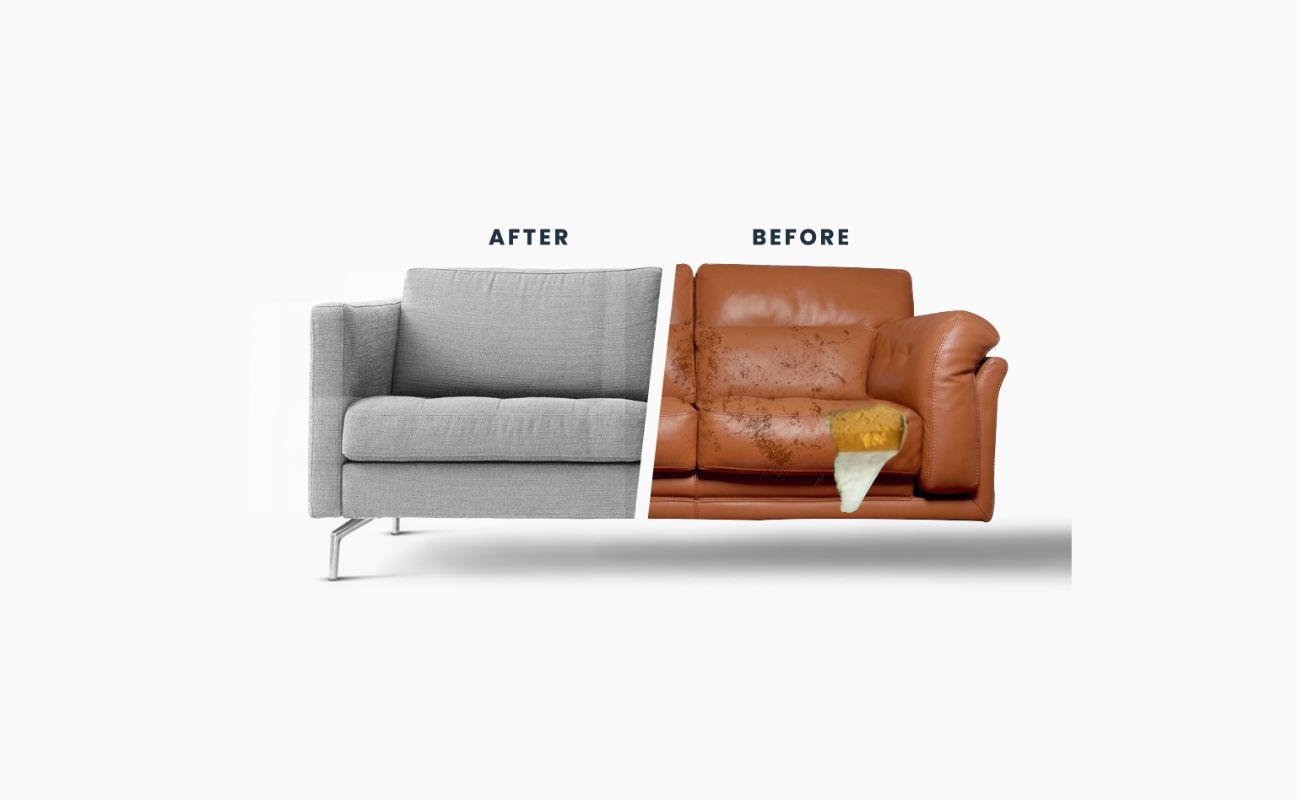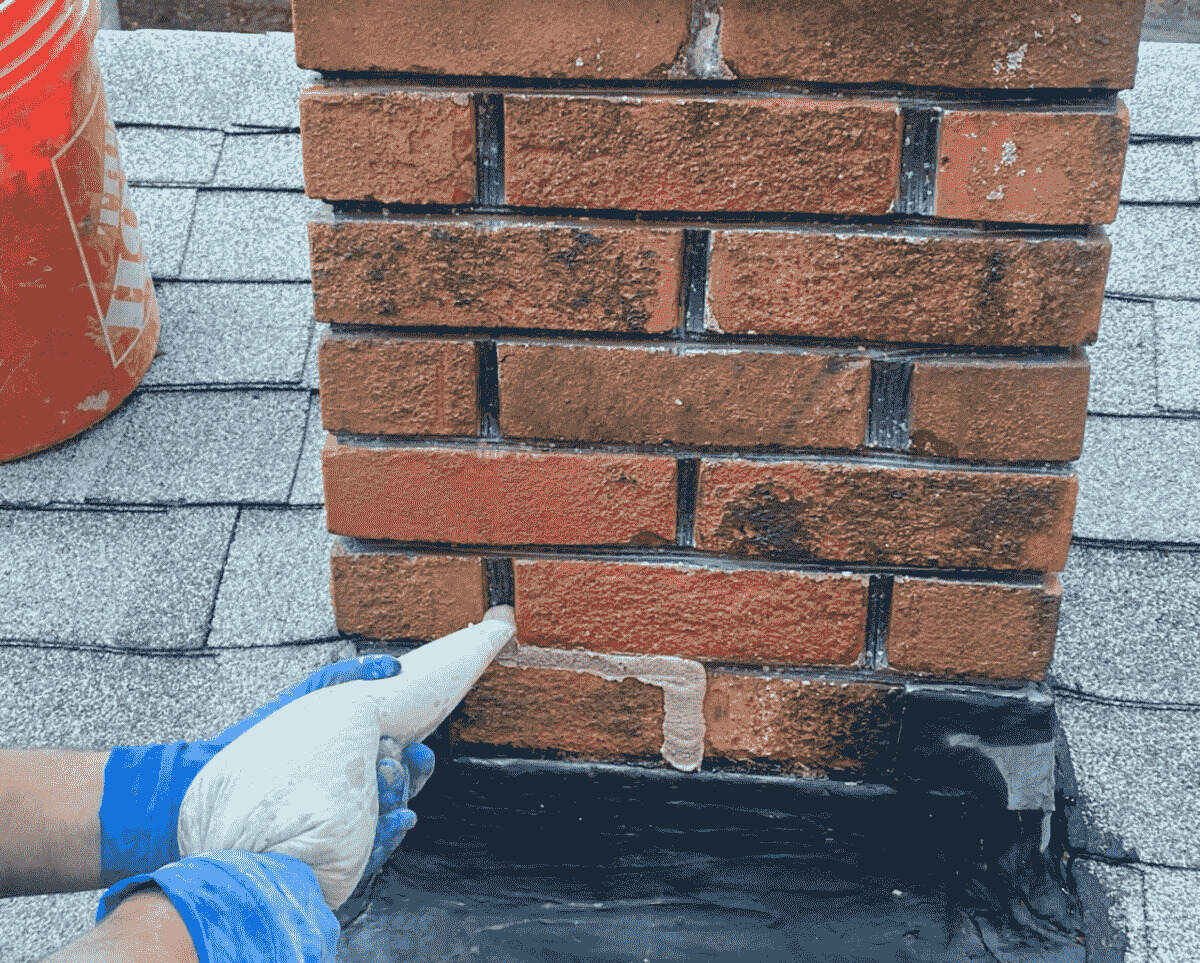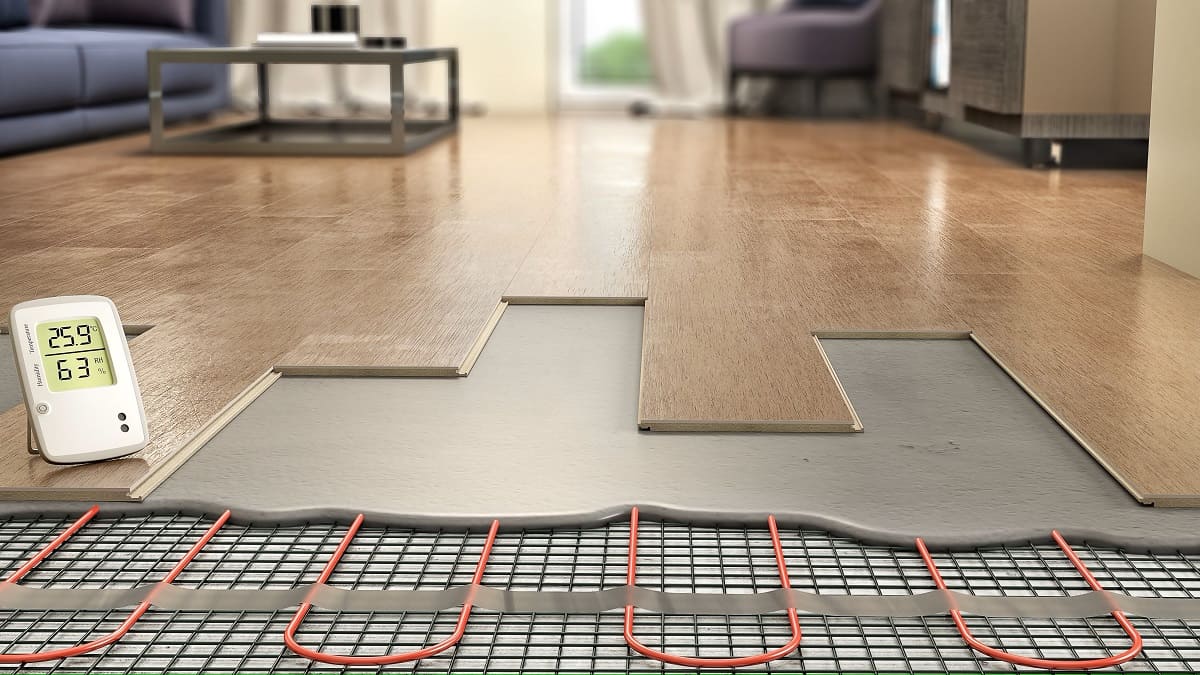Home>Home Maintenance>How Much Does Couch Repair Cost


Home Maintenance
How Much Does Couch Repair Cost
Modified: August 17, 2024
Get an idea of how much couch repair will cost you with our home maintenance guide. Realistic price ranges and factors to consider.
(Many of the links in this article redirect to a specific reviewed product. Your purchase of these products through affiliate links helps to generate commission for Storables.com, at no extra cost. Learn more)
Introduction
Welcome to our comprehensive guide on couch repair costs! Your couch is often the centerpiece of your living room, providing a comfortable and stylish place for you and your family to relax and unwind. However, over time, wear and tear can take a toll on your beloved couch, leading to various issues such as sagging cushions, torn upholstery, or broken frames.
When faced with these couch-related woes, it’s essential to have a good understanding of the repair options available to you and the associated costs. In this article, we will discuss the factors that can affect couch repair costs, the different types of couch repair services available, and provide insights into the average costs of common couch repairs. Additionally, we’ll explore ways to save money on couch repair and discuss DIY options for those who are more hands-on. Finally, we’ll touch on when it may be necessary to hire a professional for your couch repair needs.
Whether you have a valuable antique couch that needs restoration or a modern sectional couch in need of repairs, this guide will equip you with the knowledge you need to make informed decisions about your couch repair project.
Now, let’s delve into the various factors that can influence the cost of repairing your couch.
Key Takeaways:
- Couch repair costs vary based on factors like damage extent, materials, and location. DIY options and professional help are available, so choose wisely to save money and preserve your couch’s value.
- Understanding the type of damage and considering DIY options can help save money on couch repair. However, for complex or valuable pieces, hiring a professional ensures quality and preserves the couch’s integrity.
Read more: How Much Does Chimney Inspection Cost
Factors Affecting Couch Repair Cost
The cost of repairing a couch can vary significantly depending on several factors. Understanding these factors will help you estimate and budget for your couch repair project more effectively. Here are the key factors that can influence the cost:
- Type and Extent of Damage: The type and extent of damage to your couch will play a major role in determining the repair cost. Minor cosmetic issues such as small tears or stains may be relatively inexpensive to fix, while major structural damage or extensive reupholstery can be more costly.
- Quality of Materials: The quality of materials used in the repair process can impact the overall cost. Higher-quality materials will likely have a higher price tag, but they may also provide better durability and longevity for your repaired couch.
- Size and Style of the Couch: The size and style of your couch can affect the repair cost. Larger couches generally require more materials and labor, which can lead to higher expenses. Additionally, intricate or unique designs may require specialized expertise, increasing the cost of repairs.
- Location: The cost of couch repair can also vary depending on your geographical location. Repair services may be more expensive in urban areas or regions with a higher cost of living. It’s always a good idea to research local repair providers and compare prices to get a sense of the average cost in your area.
- Additional Services: Additional services beyond basic repairs, such as cushion re-stuffing, frame reinforcement, or fabric protection treatments, can add to the overall cost. Discuss these services with your repair provider to determine which ones are necessary and if they fit within your budget.
It’s important to note that while some couch repairs may seem small or simple to fix, it’s always best to consult with a professional before attempting any DIY repairs. Incorrect repairs or temporary fixes can potentially lead to more significant damage and ultimately result in higher repair costs. Now that we’ve explored the factors influencing couch repair costs, let’s take a look at the different types of couch repair services available.
Types of Couch Repair Services
When it comes to couch repair, there are various services available to address different types of issues. Understanding these different services will help you determine the best approach for your specific repair needs. Here are some common types of couch repair services:
- Upholstery Repair: Upholstery repair focuses on fixing any damage to the fabric, such as tears, stains, or fading. This can involve patching up small tears, replacing sections of fabric, or completely reupholstering the couch.
- Cushion Replacements: Over time, cushions can become saggy or worn out. Cushion replacements involve replacing the foam or padding inside the cushions for improved comfort and support.
- Frame Repair: If the frame of your couch is damaged, it may require repair or reinforcement. This can include fixing broken or loose joints, replacing damaged wooden or metal components, or adding additional support to weak areas.
- Spring Replacement: If your couch has sagging seats or uneven support, it may need spring replacement. This involves removing and replacing damaged or worn-out springs for improved comfort and stability.
- Recliner Mechanism Repair: If you have a reclining couch or sofa, the mechanisms that allow for reclining functionality may need repair. This can involve fixing broken or malfunctioning levers, cables, or springs.
- Stain Removal and Cleaning: If your couch is stained or dirty, professional stain removal and cleaning services can help restore its appearance. This typically involves deep cleaning techniques, such as steam cleaning or specialized stain removal treatments.
It’s important to note that the specific repair services needed for your couch will depend on the type of damage and the condition of your couch. Consulting with a professional upholstery repair specialist is the best way to assess the extent of the damage and determine the appropriate repair services.
Now that we have covered the different types of couch repair services, let’s move on to discussing the average cost of common couch repairs.
Average Cost of Common Couch Repairs
The cost of repairing a couch can vary significantly based on the type of repair needed and several other factors. Here is a breakdown of the average costs for some common couch repairs:
- Upholstery Repair: The cost for upholstery repair typically ranges from $100 to $1000, depending on the extent of the damage and the type of fabric. Patching small tears or fixing minor stains may cost around $100 to $300, while reupholstering the entire couch can range from $500 to $1000 or more.
- Cushion Replacements: The cost of replacing couch cushions can vary based on their size, quality, and the type of filling used. On average, you can expect to pay around $50 to $200 per cushion. The total cost will depend on the number of cushions that need replacement.
- Frame Repair: The cost of frame repair will depend on the extent of the damage and the materials used in the construction of the couch frame. Simple repairs such as fixing loose joints may cost around $100 to $300, while more significant repairs or replacements can range from $300 to $1000 or more.
- Spring Replacement: The cost to replace couch springs can vary depending on the number of springs and the type of springs used. On average, you can expect to pay around $100 to $400 for spring replacement, depending on the complexity of the job.
- Recliner Mechanism Repair: The cost of fixing a recliner mechanism can range from $100 to $400, depending on the type of repair needed and the complexity of the reclining system. It’s important to note that some repairs may require sourcing specific parts, which could increase the overall cost.
- Stain Removal and Cleaning: Hiring professional services for stain removal and cleaning can cost around $50 to $200, depending on the size of the couch and the severity of the stains. Additional charges may apply for specialized treatments or if the fabric requires extra care.
Remember, these are just average costs, and the actual price for your couch repair will depend on several factors, including the specific repair needed, the size and style of your couch, and your location. To get an accurate estimate, it’s recommended to consult with local upholstery repair professionals and obtain multiple quotes.
Next, we’ll explore some tips on how to save money on couch repair without compromising the quality of the work.
When considering the cost of couch repair, it’s important to factor in the type of damage, the materials needed, and the expertise of the repair person. Simple repairs like fixing a small tear or replacing a cushion may cost around $100-$200, while more extensive repairs like reupholstering or structural fixes can range from $500-$1000 or more. Always get a few quotes and consider the long-term value of the repair before making a decision.
How to Save Money on Couch Repair
Repairing a couch doesn’t have to break the bank. With some careful planning and consideration, you can save money on couch repair without compromising the quality of the work. Here are some tips to help you cut costs:
- Shop Around and Compare Quotes: Don’t settle for the first repair service you come across. Take the time to research and gather quotes from different upholstery repair professionals. This will allow you to compare prices and choose the most affordable option without compromising quality.
- Consider DIY Options: If you’re handy and have some basic upholstery skills, consider taking on some of the simpler repairs yourself. Small tears, stained upholstery, or loose buttons can often be fixed with a little DIY effort and the right tools. However, be cautious not to tackle complex repairs if you’re not confident in your abilities, as this could lead to further damage.
- Opt for Partial Reupholstery: If only certain sections of your couch’s upholstery are damaged, consider opting for partial reupholstery rather than reupholstering the entire couch. This can be a cost-effective solution that allows you to address the damaged areas while preserving the quality of the rest of the upholstery.
- Re-purpose or Upcycle: Before considering a costly repair, think about repurposing your couch or giving it a new look through upcycling. Sometimes a fresh coat of paint, new throw pillows, or a creative cover can breathe new life into your couch without the need for extensive repairs.
- Maintain Regular Cleaning and Care: Prevention is key to avoiding costly repairs. Regularly cleaning your couch, vacuuming between cushions, and addressing stains promptly can help prolong its lifespan and minimize the need for more significant repairs down the line.
- Consider Secondhand or Vintage Couches: If your current couch is beyond repair or the cost of fixing it is too high, consider exploring secondhand or vintage couches. These options can often be found at a fraction of the cost of purchasing a brand-new couch. With a little TLC and minor repairs, you can have a stylish and unique piece without breaking the bank.
Remember, while it’s essential to save money, it’s equally important to prioritize quality when it comes to couch repair. Cutting corners or choosing the cheapest option may result in poor craftsmanship or subpar materials, leading to more frequent repairs in the future. Striking a balance between cost and quality is the key to a successful couch repair project.
Now let’s explore some DIY options for those who prefer a hands-on approach to couch repair.
Read more: How Much Does It Cost To Replace A Chimney
DIY Options for Couch Repair
If you’re the type of person who enjoys tackling home improvement projects, you’ll be pleased to know that there are several DIY options for couch repair. While more complex repairs are best left to professionals, there are some simple fixes you can try yourself. Here are a few DIY options for common couch repairs:
- Repairing Small Tears: If your couch has small tears in the upholstery, you can attempt to fix them yourself. Start by cleaning the area around the tear and trimming any loose threads. Apply fabric glue to the edges of the tear and carefully press them together. Use a fabric patch or a piece of sturdy fabric to reinforce the repaired area from the back, securing it in place with fabric glue or a needle and thread.
- Restuffing Cushions: If your cushions have lost their shape and become saggy, you can try restuffing them to restore their firmness. Remove the cushion covers and inspect the filling. If it’s worn or lumpy, replace it with new foam or batting. Measure the dimensions of the cushion and cut the new filling to size. Insert the new filling, making sure it fills the cushion evenly. Finally, reattach the cushion cover or sew a new cover if necessary.
- Tightening Loose Joints: If your couch frame has loose joints, you can tighten them to improve stability. Use a screwdriver or Allen wrench to access the screws or bolts holding the joints together. Tighten them carefully, being cautious not to overtighten and strip the threads. This simple fix can eliminate wobbling and ensure a more solid frame.
- Fixing Squeaky Springs: If your couch springs are squeaky, you can apply a lubricant to reduce noise. Remove the cushions and locate the squeaky springs. Apply a small amount of silicone spray or powdered graphite to the springs where they meet the frame. Test the couch to ensure the squeaking has been eliminated.
- Addressing Stains: For minor stains on your couch, you can try DIY stain removal techniques. Different types of stains may require different approaches, so research the appropriate method for your specific stain. Common methods include using mild soap and water, vinegar solutions, or baking soda paste. Apply the chosen solution, gently scrub the stained area with a soft brush, and blot with a clean cloth. Always test any cleaning solution on a small, inconspicuous area of the couch first to ensure it won’t damage the fabric.
While DIY options can save you money, it’s important to assess your skill level and the complexity of the repair before diving in. If a repair seems too challenging or risky, it’s best to hire a professional to ensure the job is done correctly. Additionally, keep in mind that attempting DIY repairs on valuable or antique couches may decrease their value if not done skillfully.
Now that we’ve explored some DIY options, let’s discuss the importance of knowing when to consider hiring a professional for your couch repair needs.
When to Consider Hiring a Professional
While there are DIY options for couch repair, there are certain situations where it’s best to enlist the help of a professional. Here are some instances when you should consider hiring a professional for your couch repair needs:
- Extensive Structural Damage: If your couch has significant structural damage, such as a broken frame or severe sagging, it’s crucial to consult a professional. They have the knowledge and expertise to accurately assess the damage and implement the necessary repairs to restore the integrity of the couch.
- Antique or Valuable Pieces: If you have an antique or valuable couch, it’s best to consult with a professional who specializes in restoring and repairing such pieces. They can ensure that the repairs are done in a way that preserves the integrity and value of the piece while maintaining its authenticity.
- Complex Upholstery Repairs: Reupholstering a couch or repairing intricate upholstery requires specialized skills and tools. A professional upholstery repair specialist will have the necessary expertise to handle complex repairs, ensuring that the fabric is properly fitted and secured without causing further damage.
- Warranty Considerations: If your couch is still under warranty, attempting DIY repairs could void the warranty. To ensure you don’t invalidate any warranty coverage, it’s advisable to consult with the manufacturer or an authorized repair service for any necessary repairs.
- Lack of Time or Skill: DIY repairs require time, patience, and skill. If you lack the time or confidence to take on a couch repair project, hiring a professional ensures that the job is done correctly and efficiently without causing additional damage.
Ultimately, hiring a professional for complex or valuable couch repairs provides peace of mind, knowing that the job will be handled by experienced hands. Moreover, professionals have access to specialized tools, materials, and industry knowledge, which can result in a higher-quality and longer-lasting repair.
Remember to research and choose a reputable and qualified professional with experience in couch repair. Read reviews, request recommendations, and ask for a detailed estimate of the repair costs before making a decision.
Now that we’ve explored when to consider hiring a professional, let’s wrap up our guide to couch repair.
Conclusion
Repairing a couch can breathe new life into your beloved piece of furniture and save you the cost of purchasing a brand-new couch. Understanding the factors that can affect couch repair costs, the different types of couch repair services available, and the average costs of common repairs is essential in making informed decisions and budgeting effectively.
Factors such as the type and extent of damage, quality of materials, size and style of the couch, location, and additional services required can all impact the overall cost of couch repair. By considering these factors and obtaining multiple quotes from repair professionals, you can find a cost-effective solution that meets your needs and budget.
For specific repairs, there are DIY options available, such as fixing small tears, restuffing cushions, tightening loose joints, addressing squeaky springs, and treating minor stains. However, it’s important to be realistic about your skills and the complexity of the repair. In some cases, it’s best to hire a professional to ensure the job is done correctly and to preserve the value and integrity of your couch.
Whether you choose to embark on a DIY repair project or hire a professional, maintaining regular cleaning and care for your couch can help prevent future damage and minimize the need for costly repairs. Remember to shop around, compare quotes, and consider affordable alternatives, such as repurposing or upcycling, before committing to extensive repairs.
By following the tips in this guide, you can navigate the world of couch repair with confidence, making informed decisions and finding the best solution for your couch’s specific needs and your budget.
Now that you’re armed with knowledge about couch repair costs, types of couch repair services, ways to save money, and when to consider professional help, you can take the necessary steps to restore your couch to its former glory and continue enjoying its comfort and style for years to come.
Frequently Asked Questions about How Much Does Couch Repair Cost
Was this page helpful?
At Storables.com, we guarantee accurate and reliable information. Our content, validated by Expert Board Contributors, is crafted following stringent Editorial Policies. We're committed to providing you with well-researched, expert-backed insights for all your informational needs.














